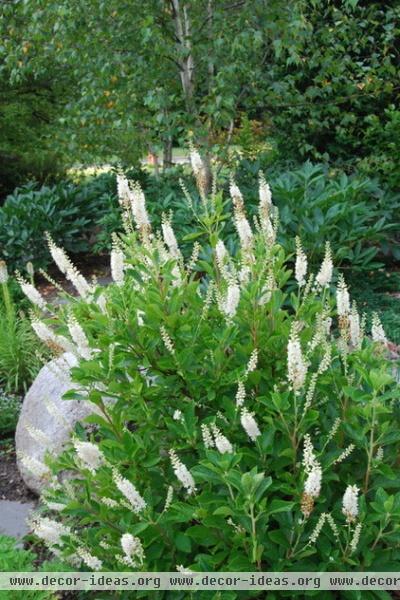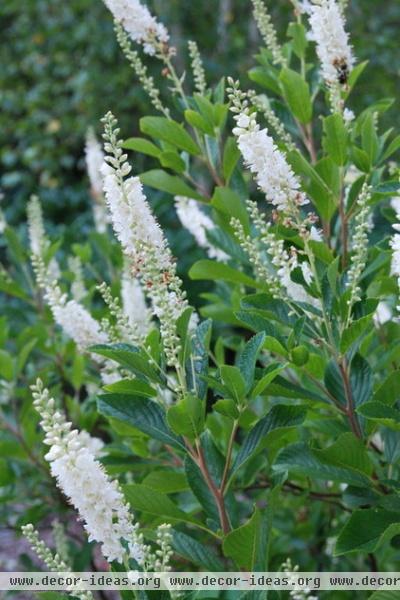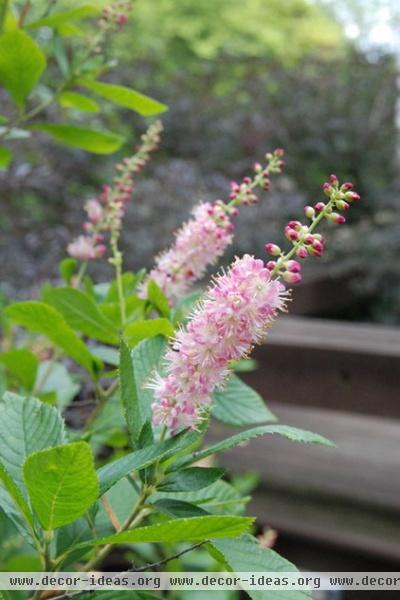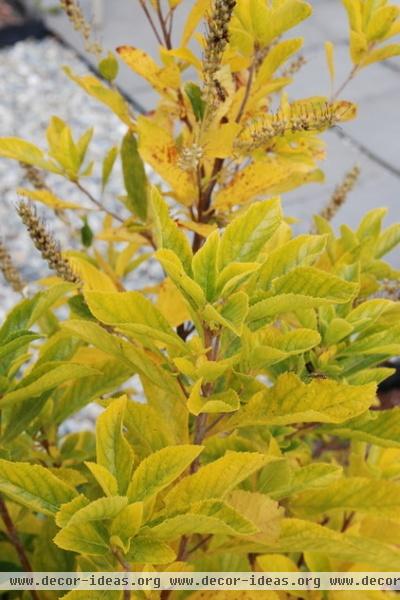Great Design Plant: Coastal Sweet Pepperbush Perfumes Gardens All Year
http://decor-ideas.org 09/22/2013 23:50 Decor Ideas
Put fragrant plants near a walkway or patio, and you instantly add a whole new dimension, making functional spaces feel more enticing with scent. You'll want to linger longer outdoors if you've got coastal sweet pepperbush (Clethra alnifolia) perfuming the air, and its bright yellow color is especially appealing at the end of the growing season.

Botanical name: Clethra alnifolia
Common names: Coastal sweet pepperbush, summersweet, sweet pepperbush
Origin: Native to the eastern United States
Where it will grow: Hardy to -30 degrees Fahrenheit (USDA zones 4 to 9; find your zone); prefers moist areas, edges of woods and meadows
Water requirement: Moist to wet conditions
Light requirement: Full sun to partial shade
Mature size: Up to 8 feet tall and wide
Benefits and tolerances: Widely adaptable to different soil types, including wet soils; disease and pest resistant
Seasonal interest: Summer flowers from June to July; outstanding yellow fall color
When to plant: Spring to fall

Distinguishing traits. Shrubs produce a spike (racime) with multiple florets that open from the bottom up; after the flowers fade the seeds persist and resemble pepper, as the common name implies. The seeds stay on the stems and are very showy in winter, especially with a light dusting of snow.
The plants sucker and grow wider than tall with maturity; they make good hedges and privacy screens.

Pink flowering 'Ruby Spice' (zones 4 to 8) was awarded a gold medal by the Pennsylvania Horticultural Society in 1998. It's a big plant, growing up to 10 feet tall with a broad spread, and can take sun or shade.
Other popular cultivars include 'Compacta' and 'Hummingbird'.

How to use it. Clethra makes an excellent specimen for swales and rain gardens, as the species occurs naturally in swampy areas, wetlands and bogs throughout the eastern U.S. It's also deer resistant.
Its alluring fragrance can be especially appreciated near a walkway or seating area, but be aware that bees love the nectar.
It's one of the last shrubs to leaf out in late spring, but it holds its leaves very late in the fall, so keep this in mind when planning to add it to mixed borders and beds.

Planting notes. With its stoloniferous habit, summersweet, as it's also called, can take up a large area over time. Plant it in an area with adequate moisture in sun or shade, and allow room for it to spread. Suckers can be cut and replanted to form new shrubs.
Combine it with willow bluestar (Amsonia spp) and oakleaf hydrangea (Hydrangea quercifolia, zones 5 to 9) for a knockout combination of colors in the fall landscape.
More: What to Do in Your Garden Now
Related Articles Recommended












